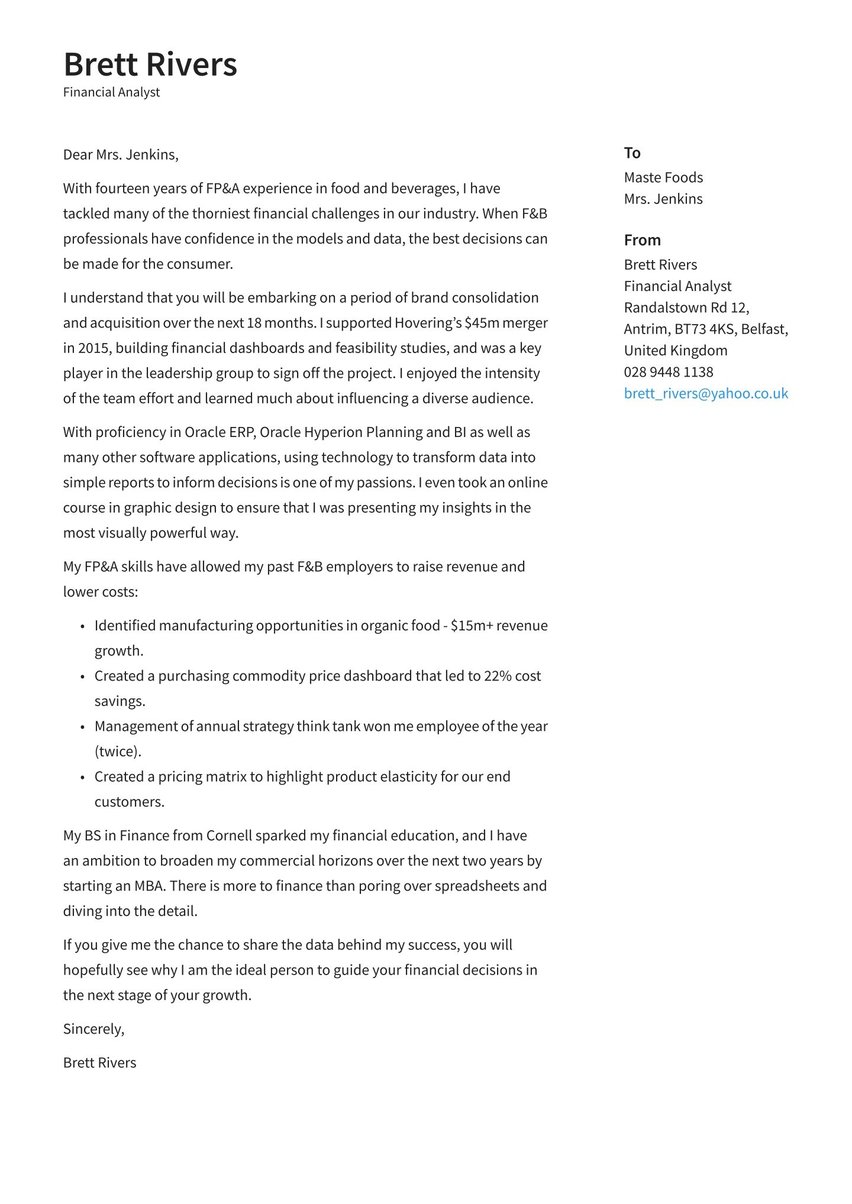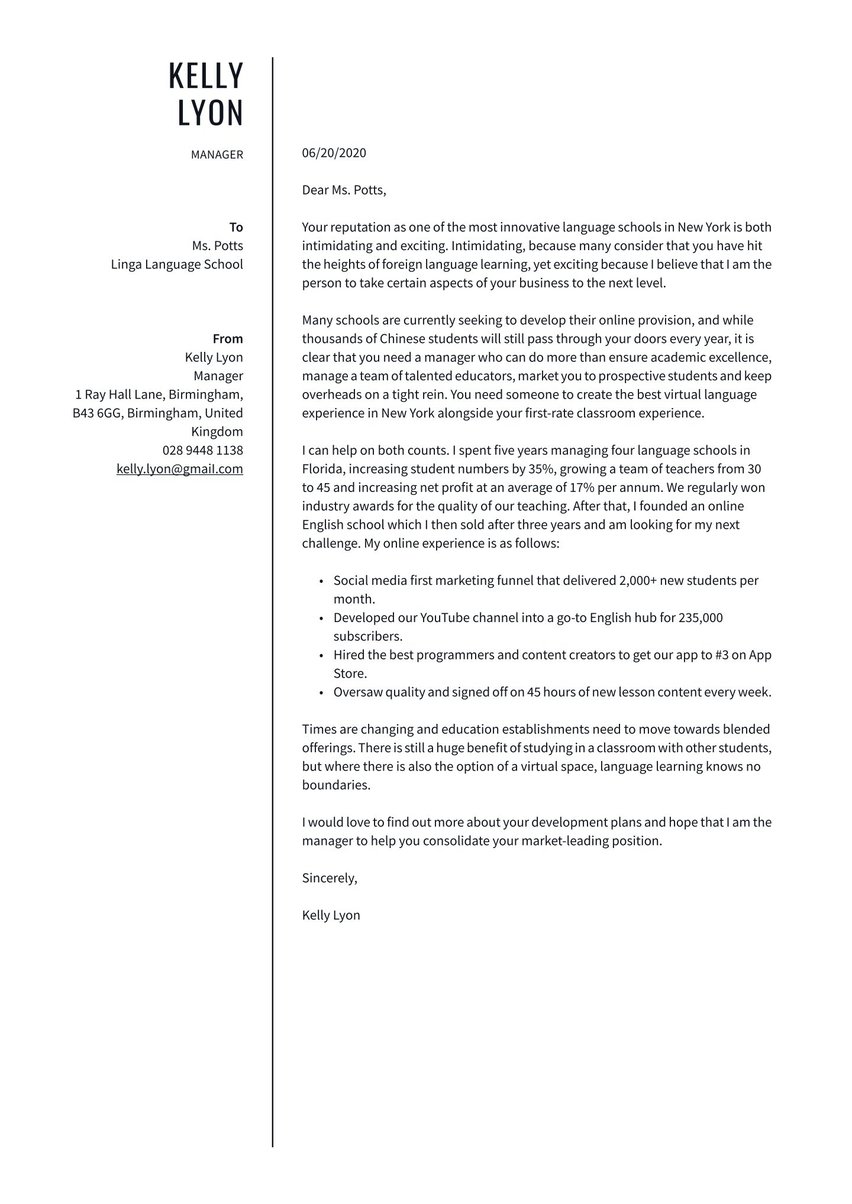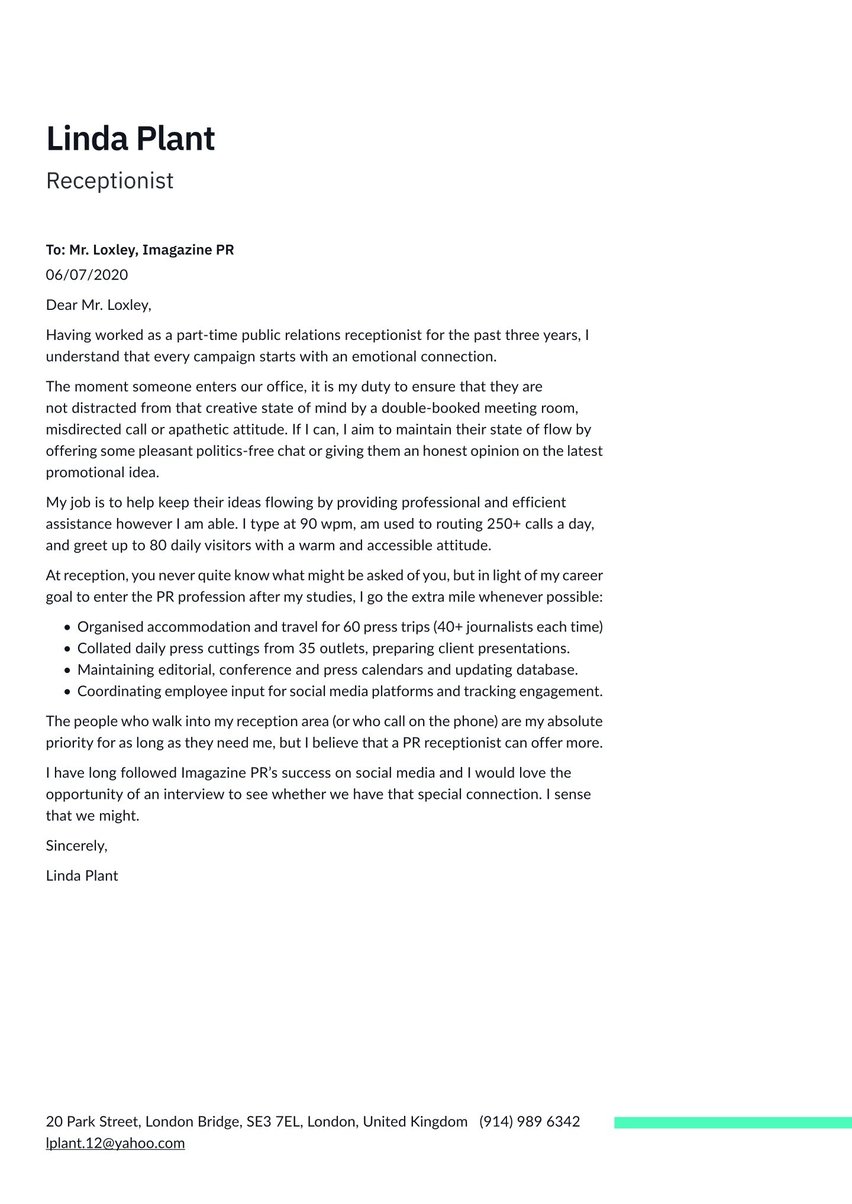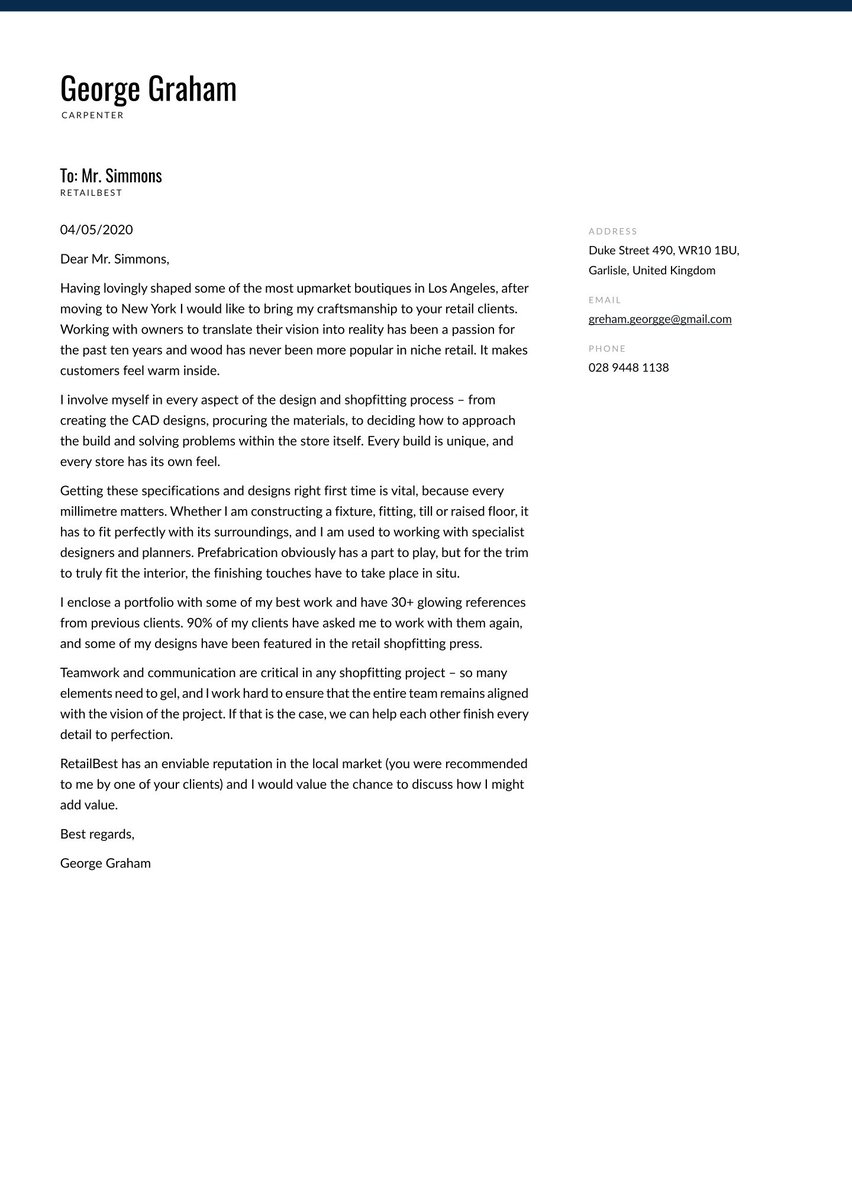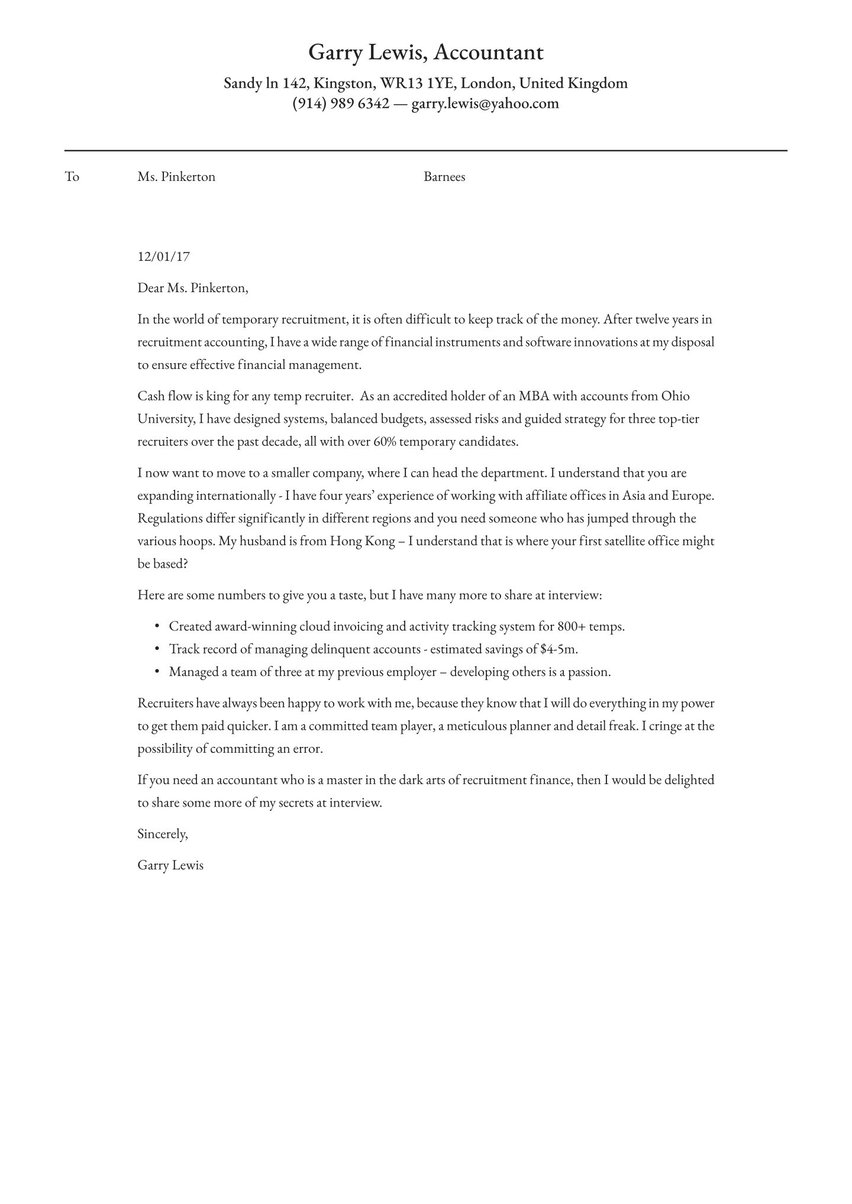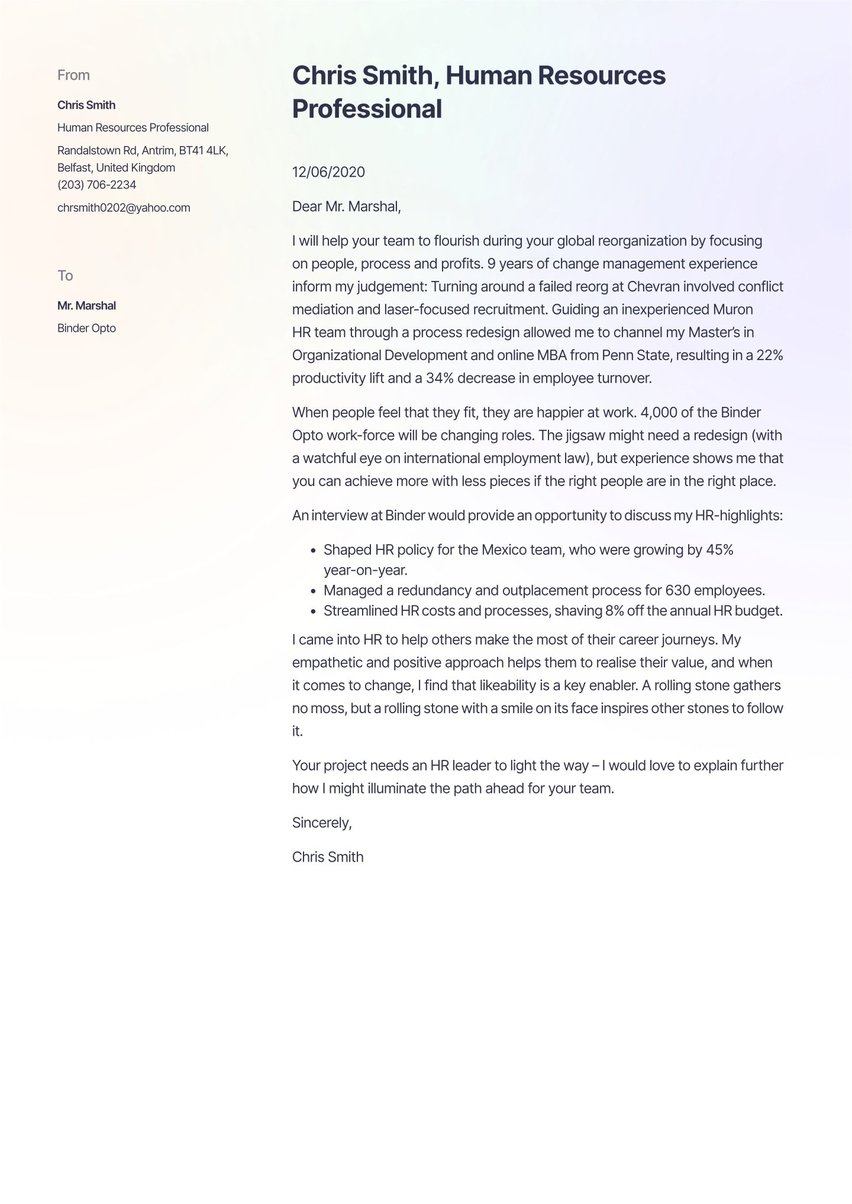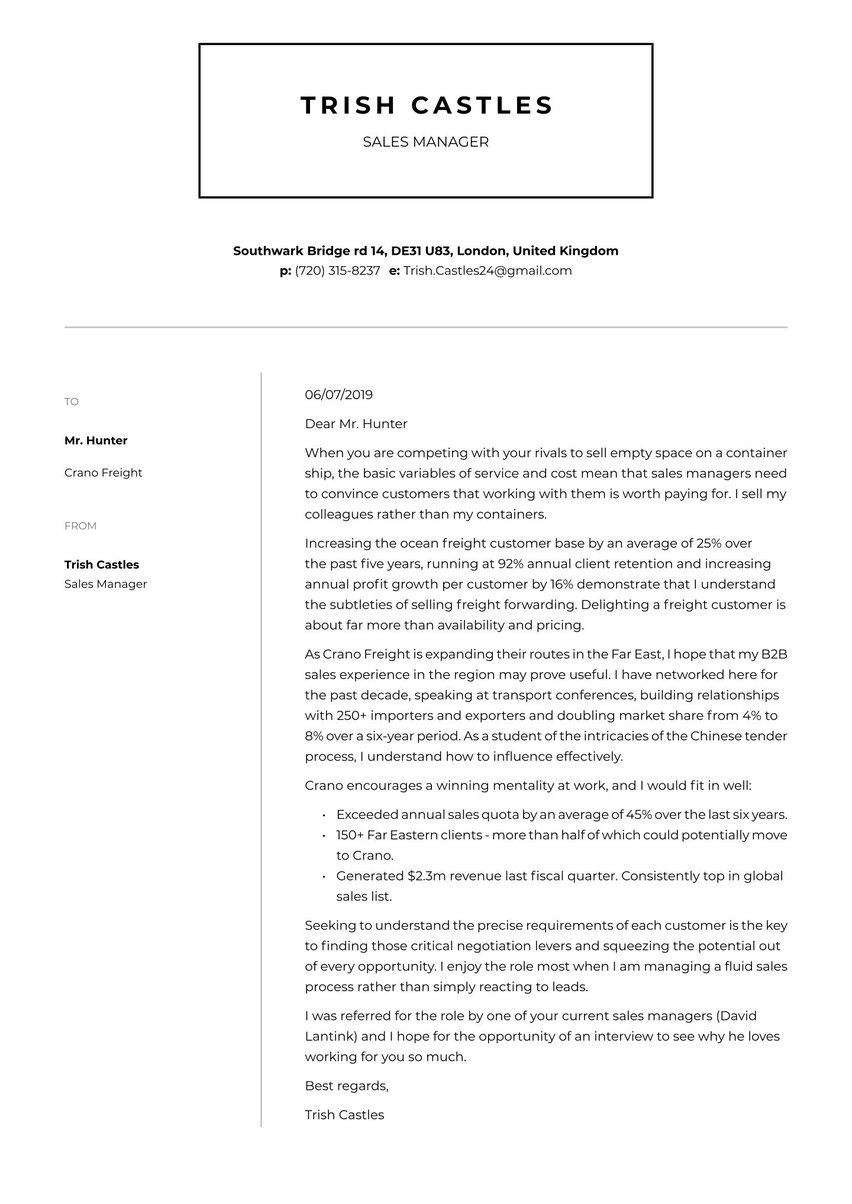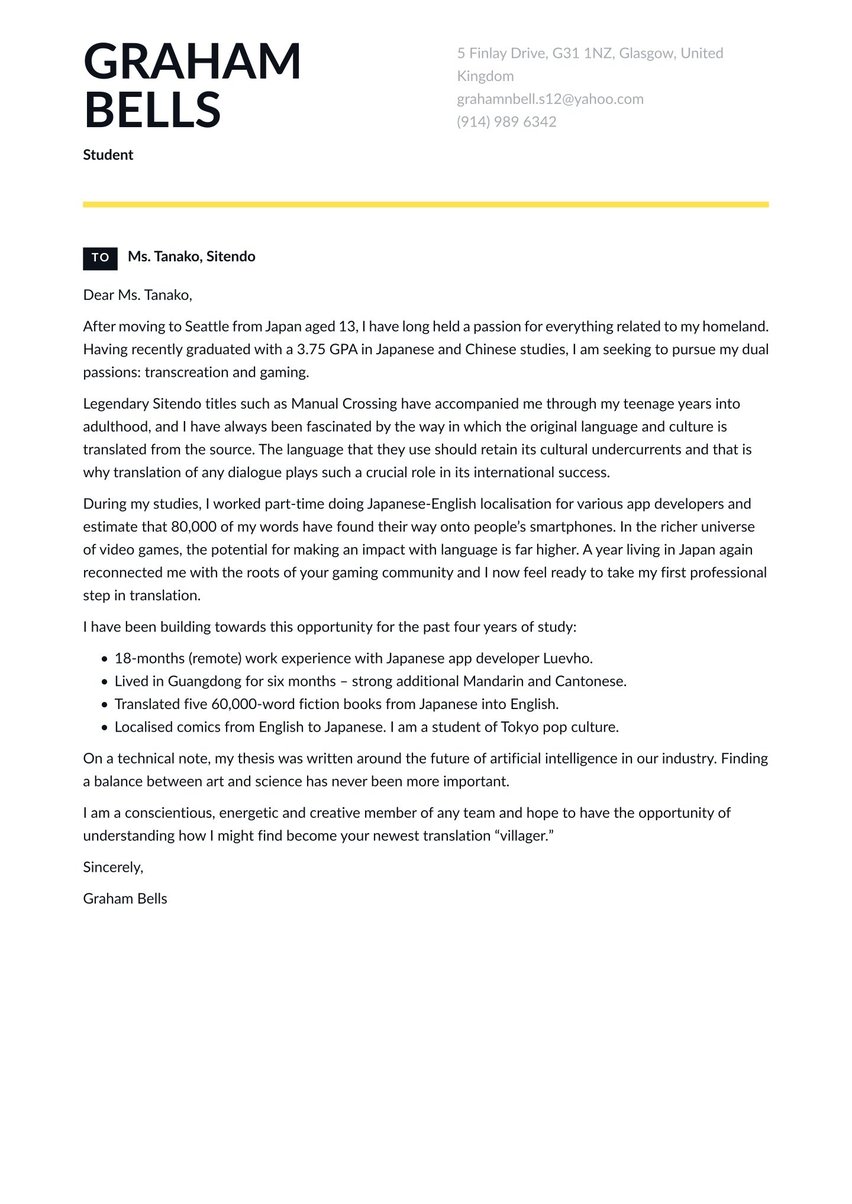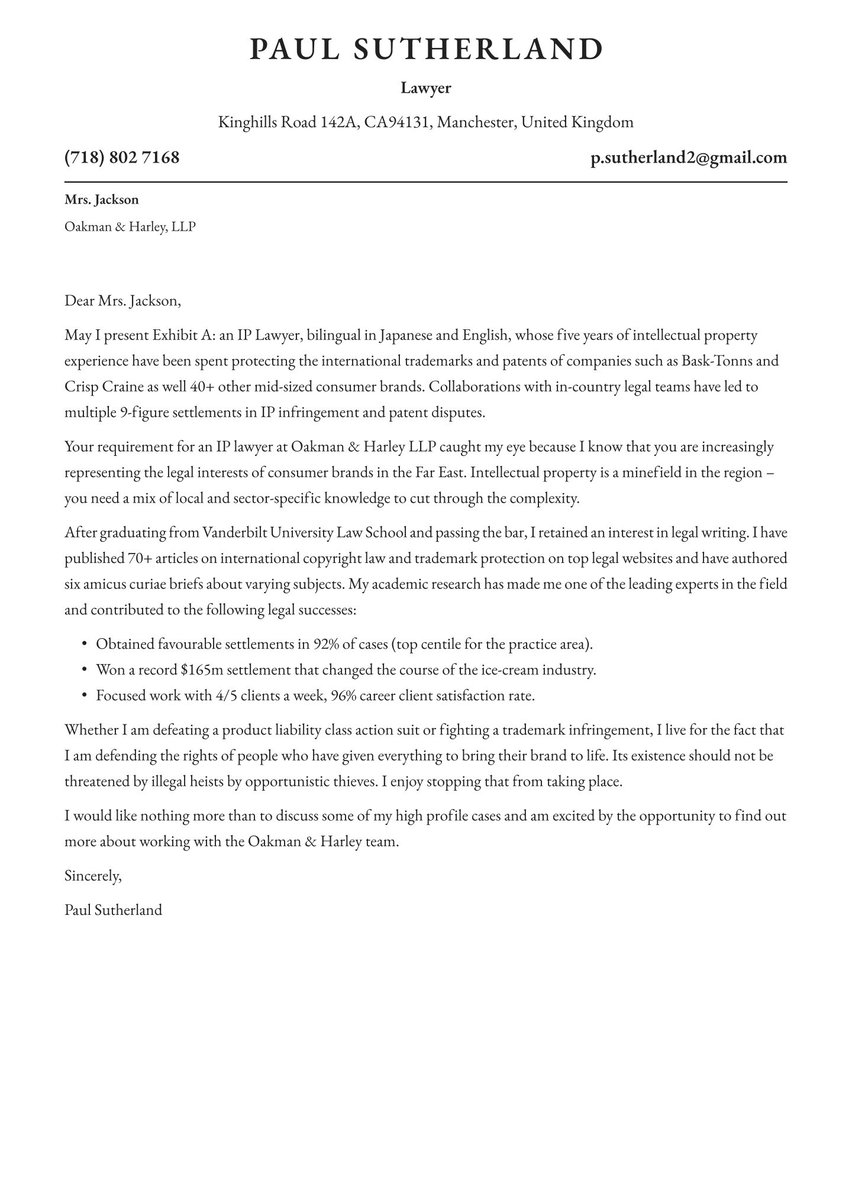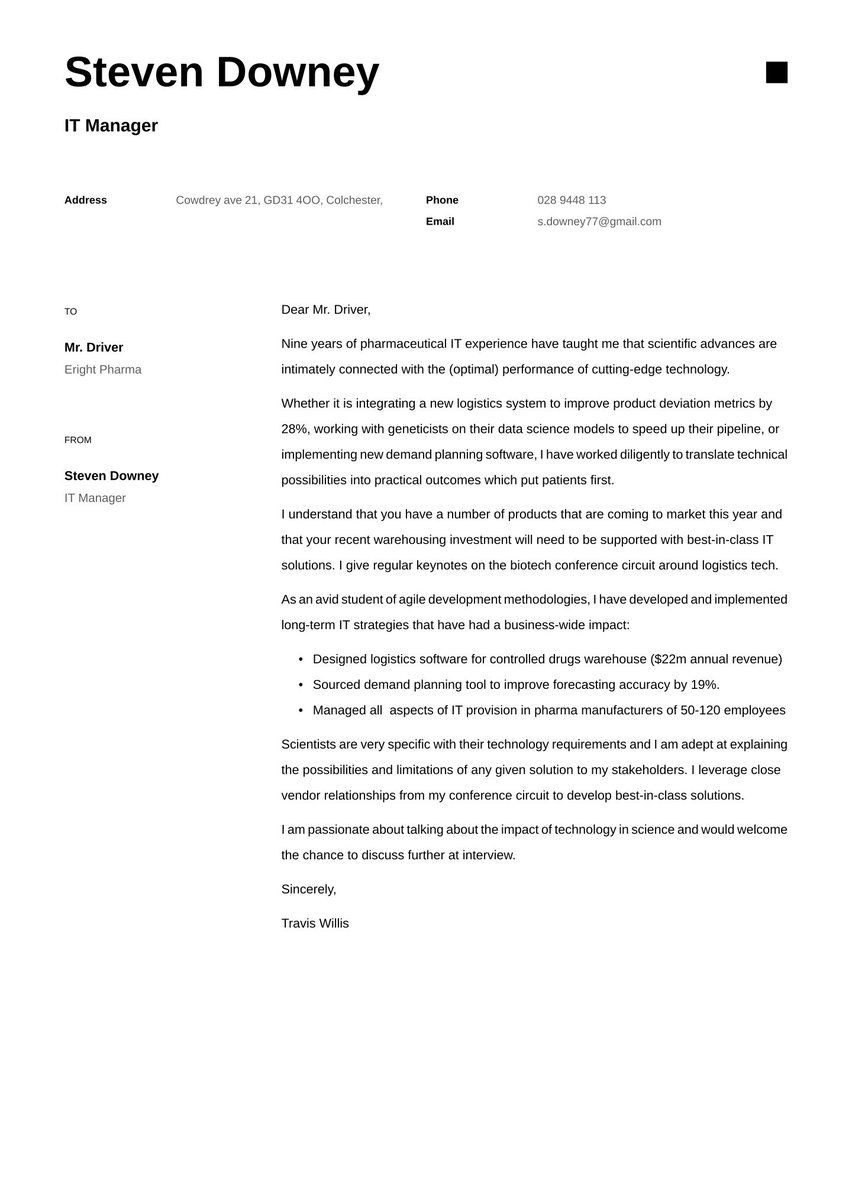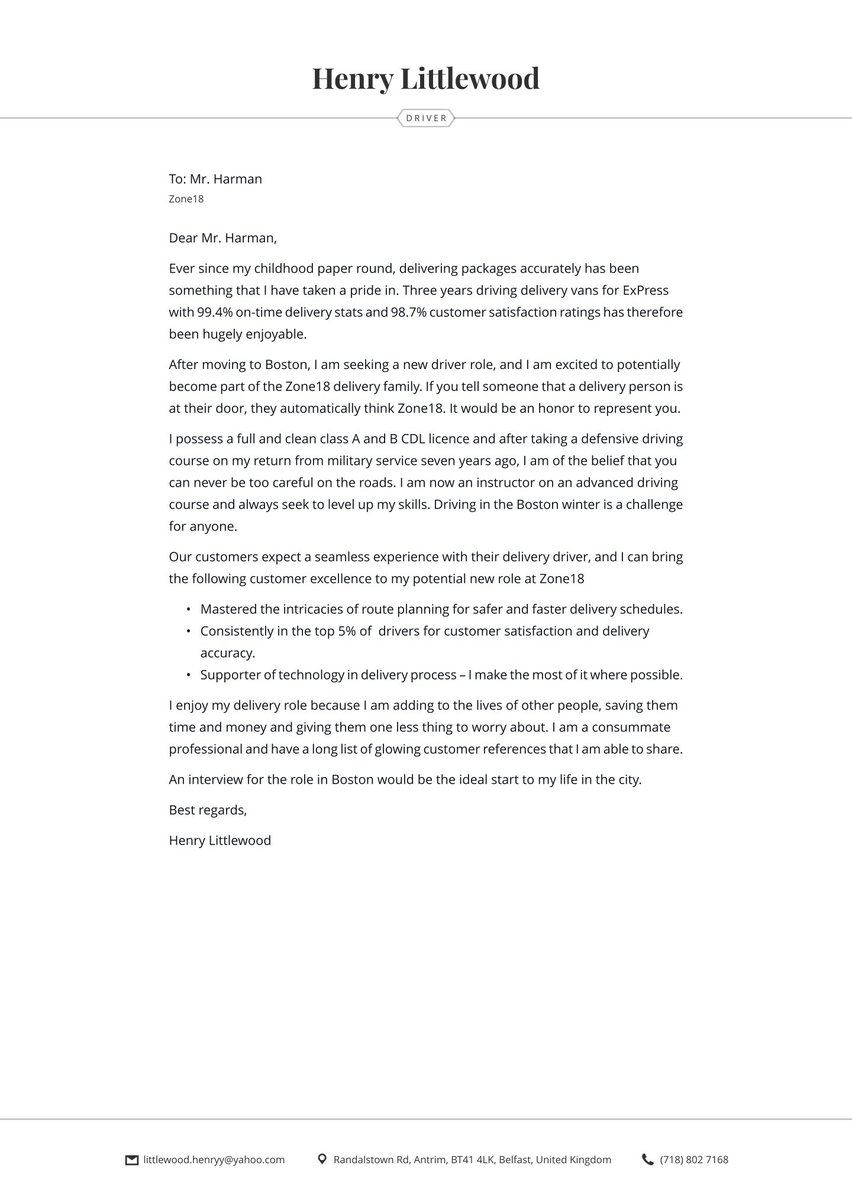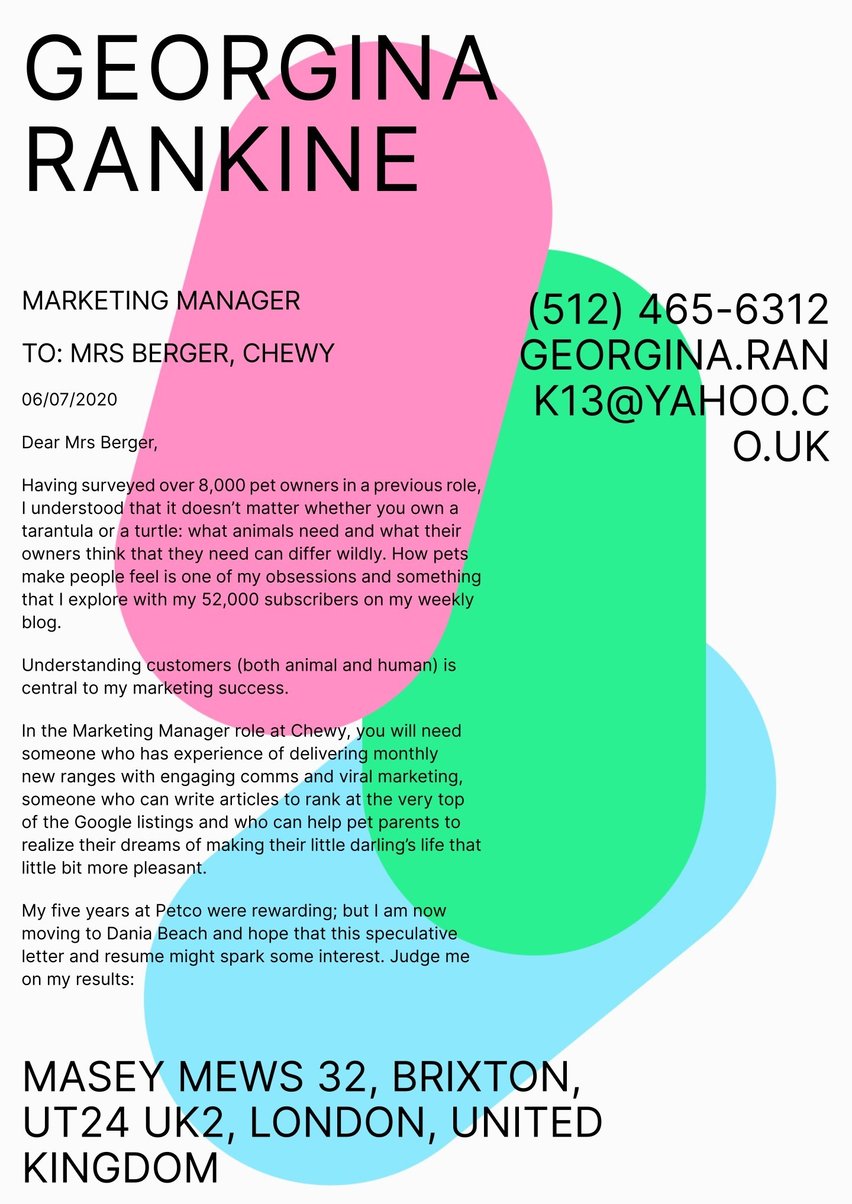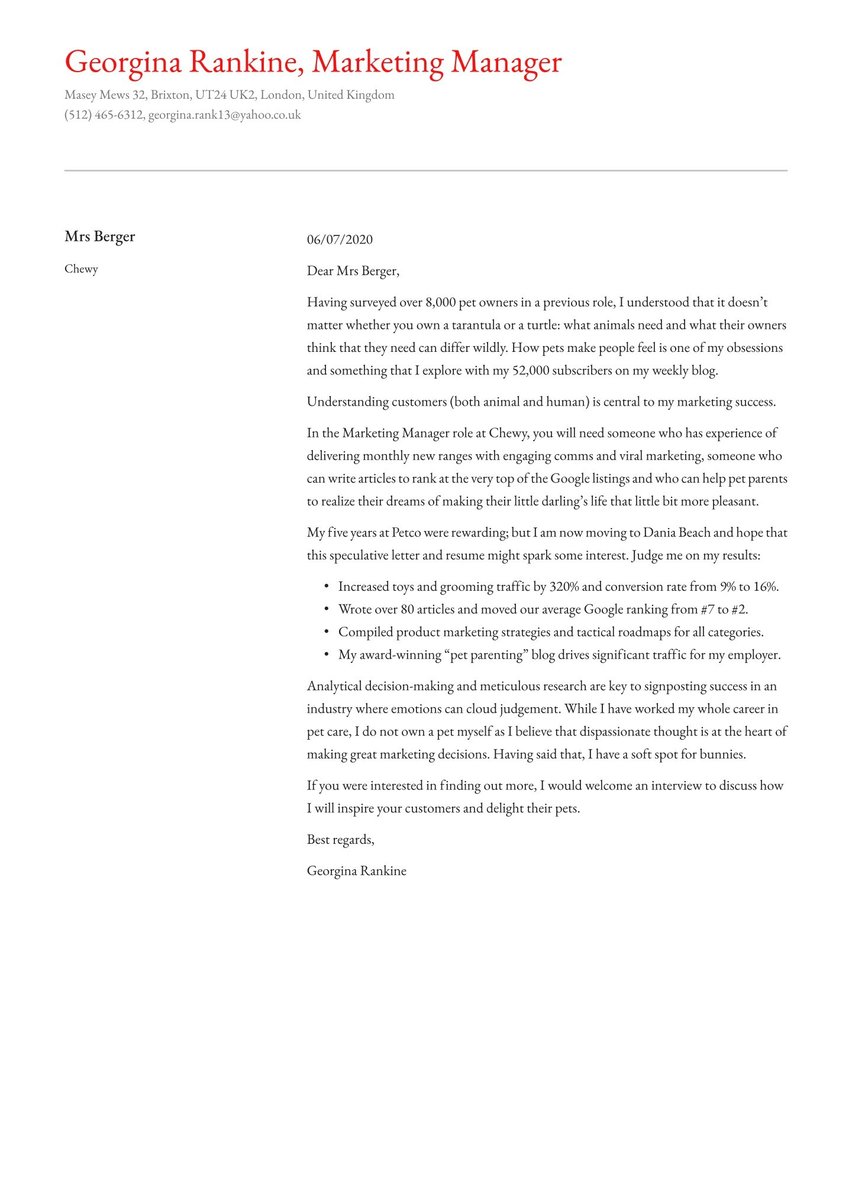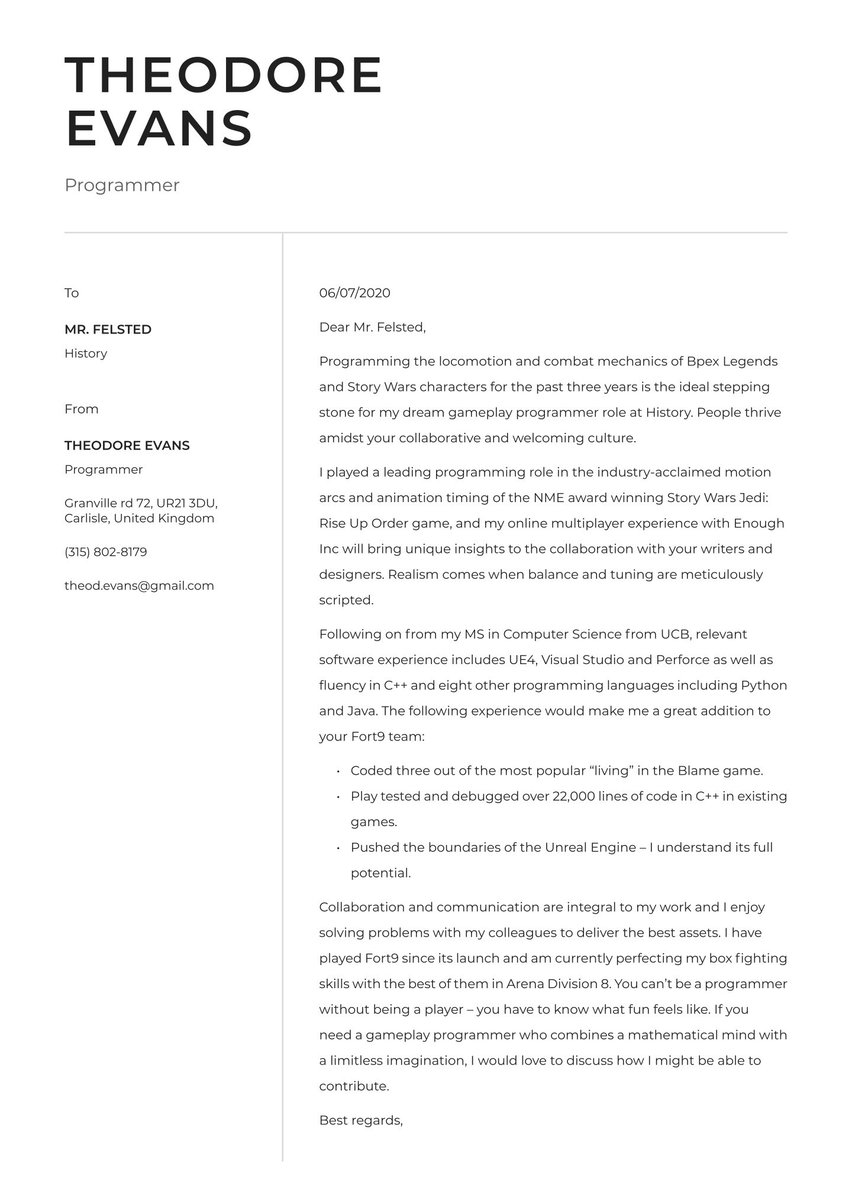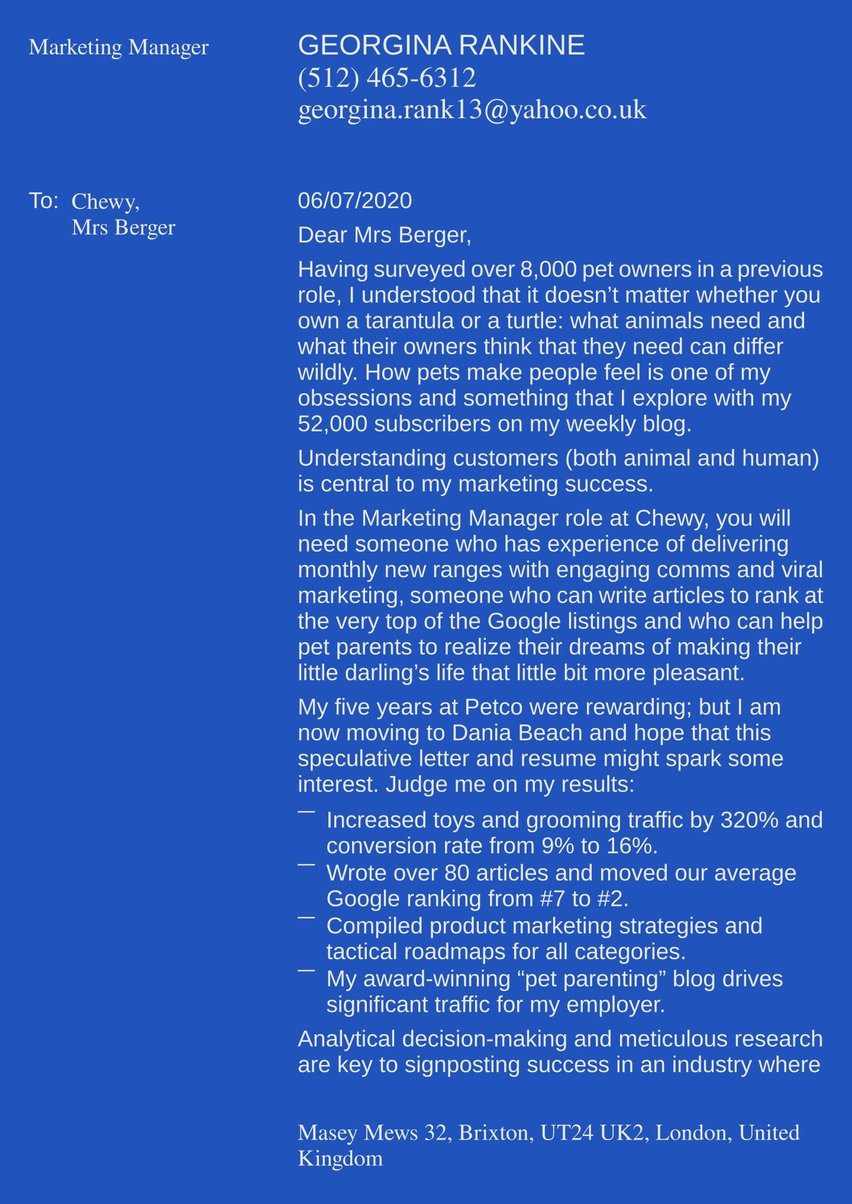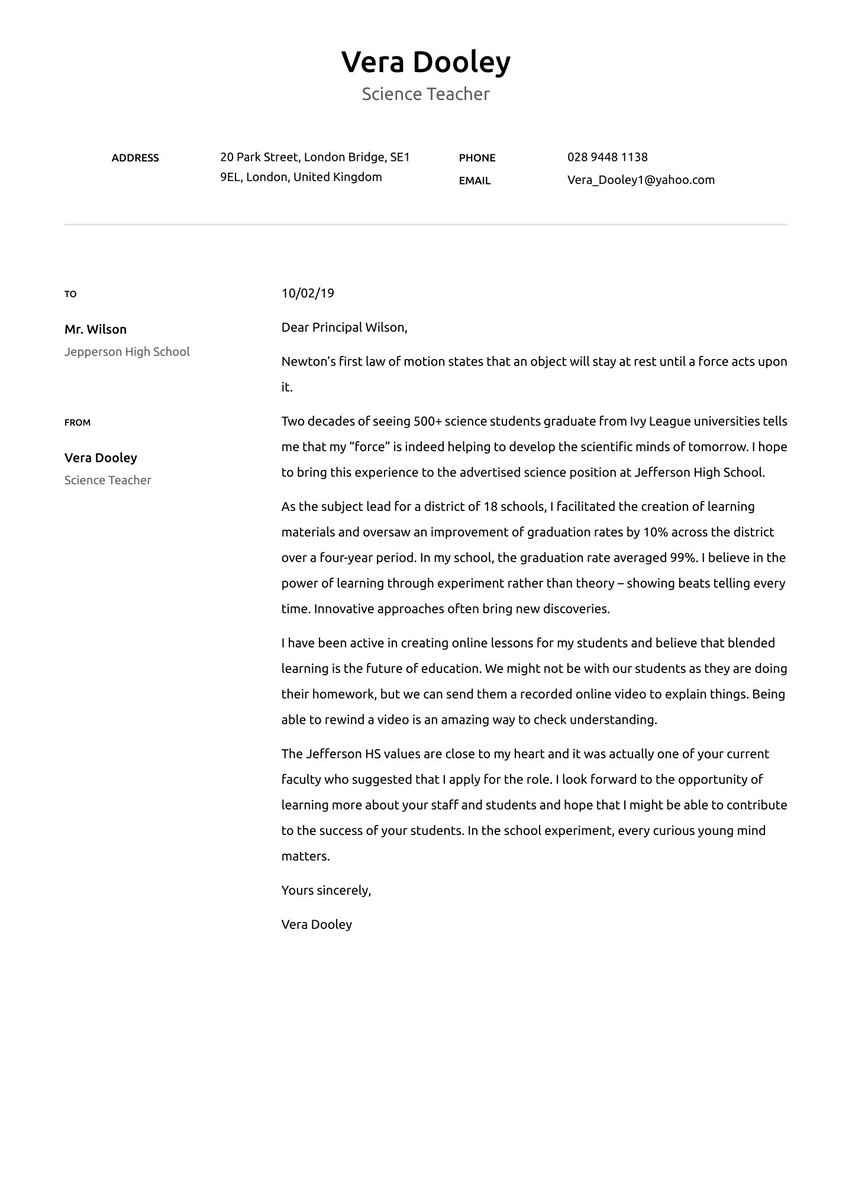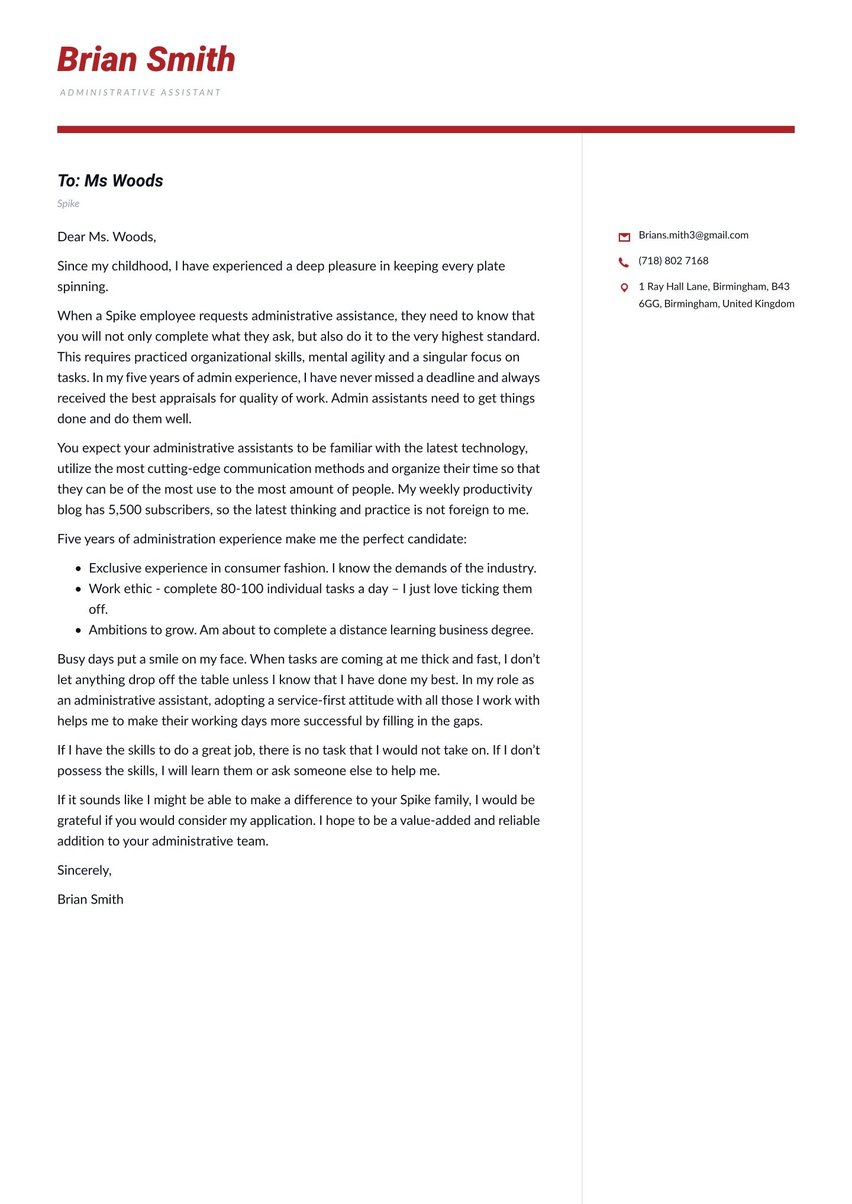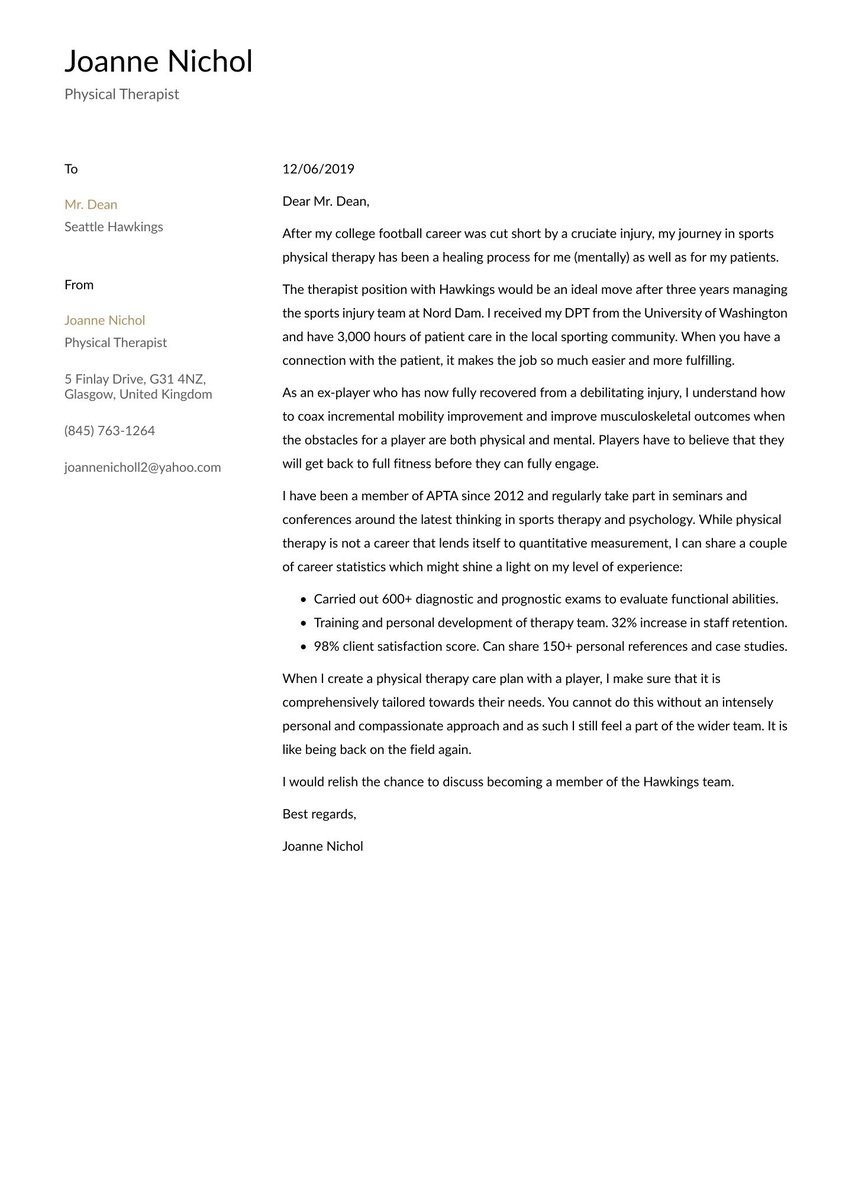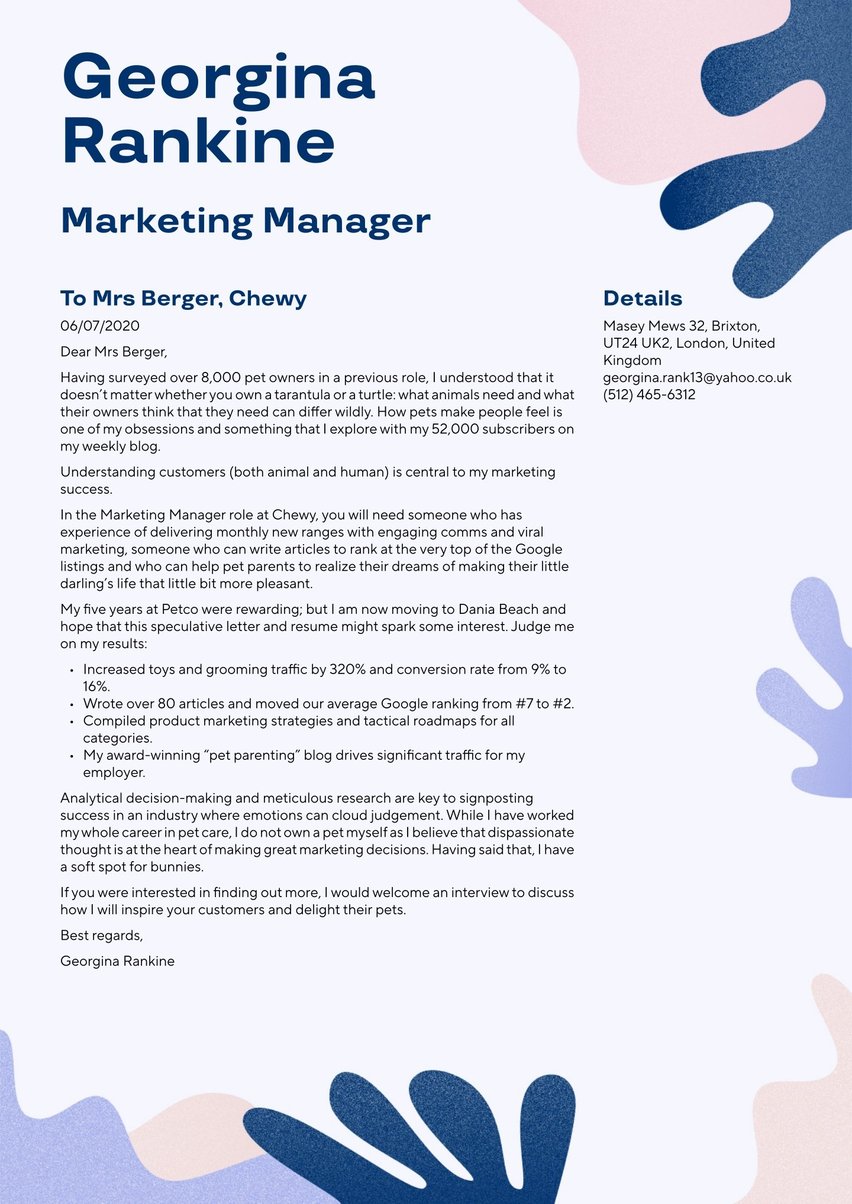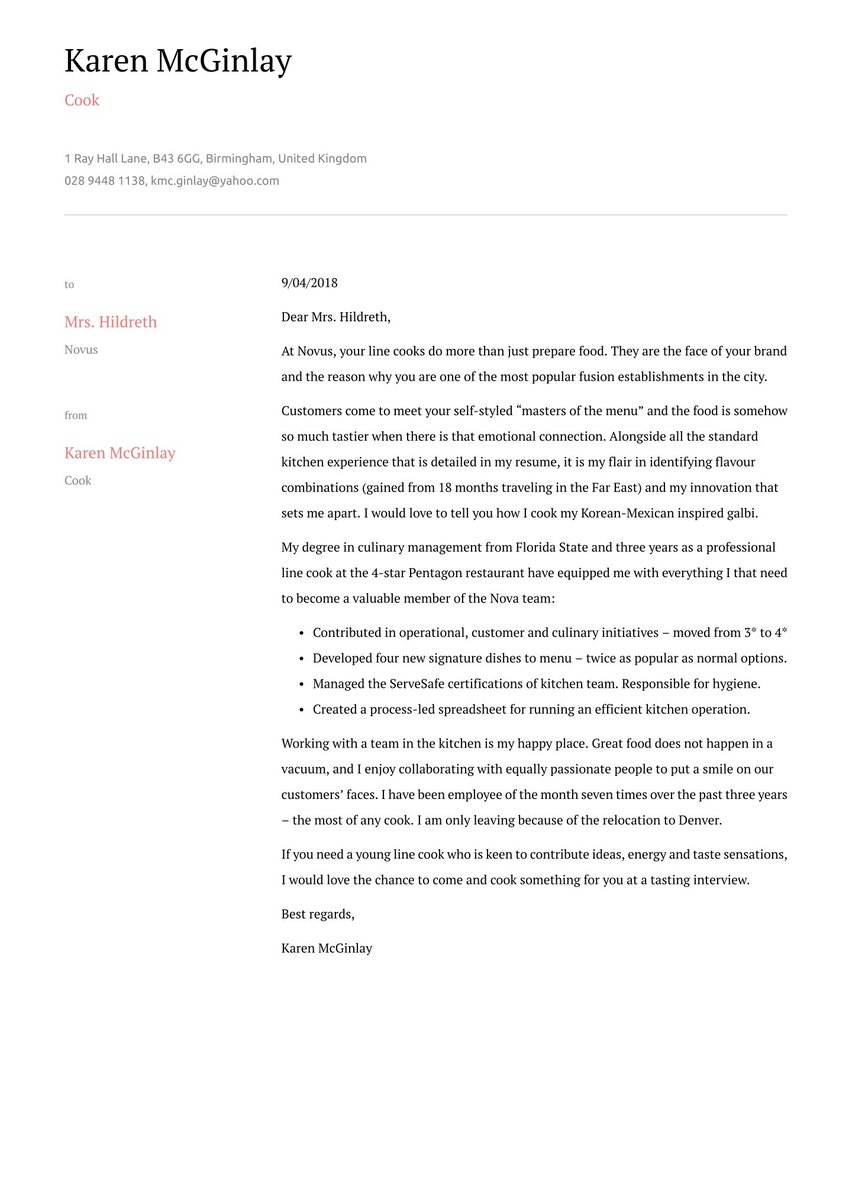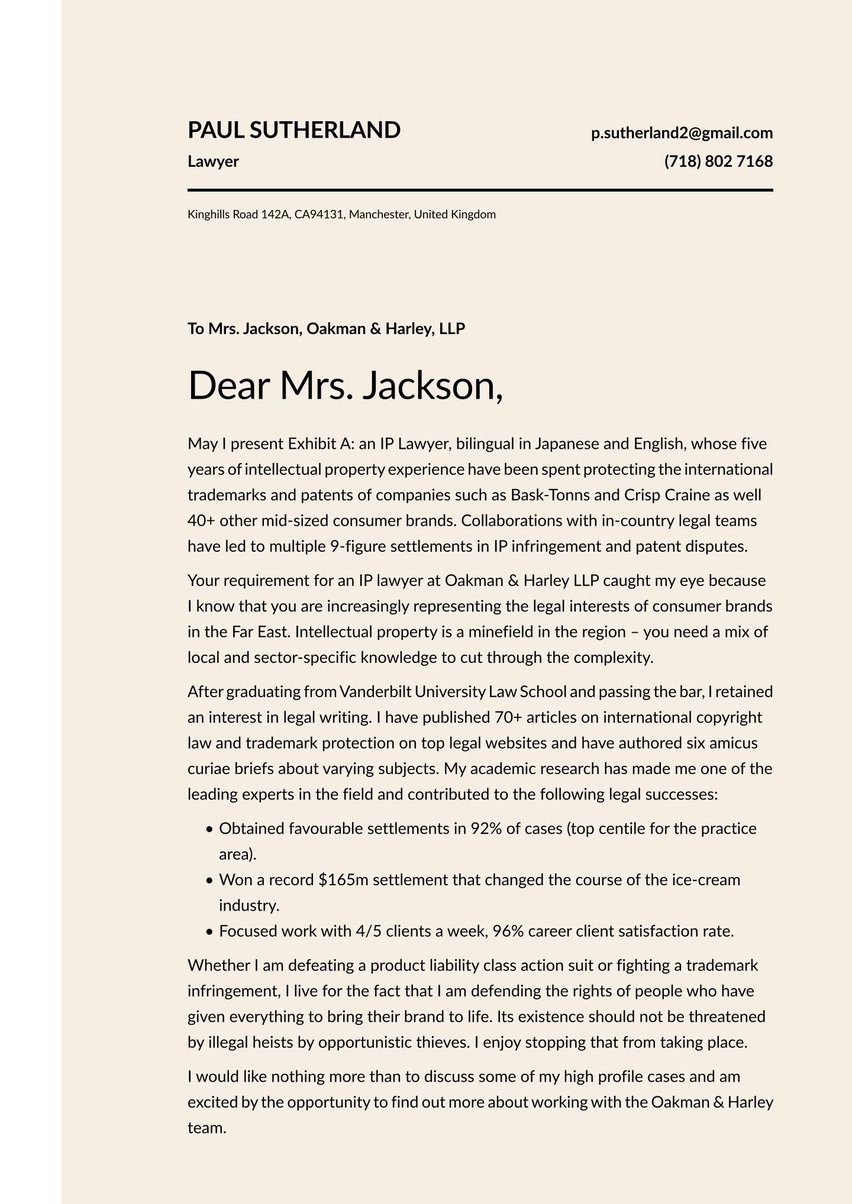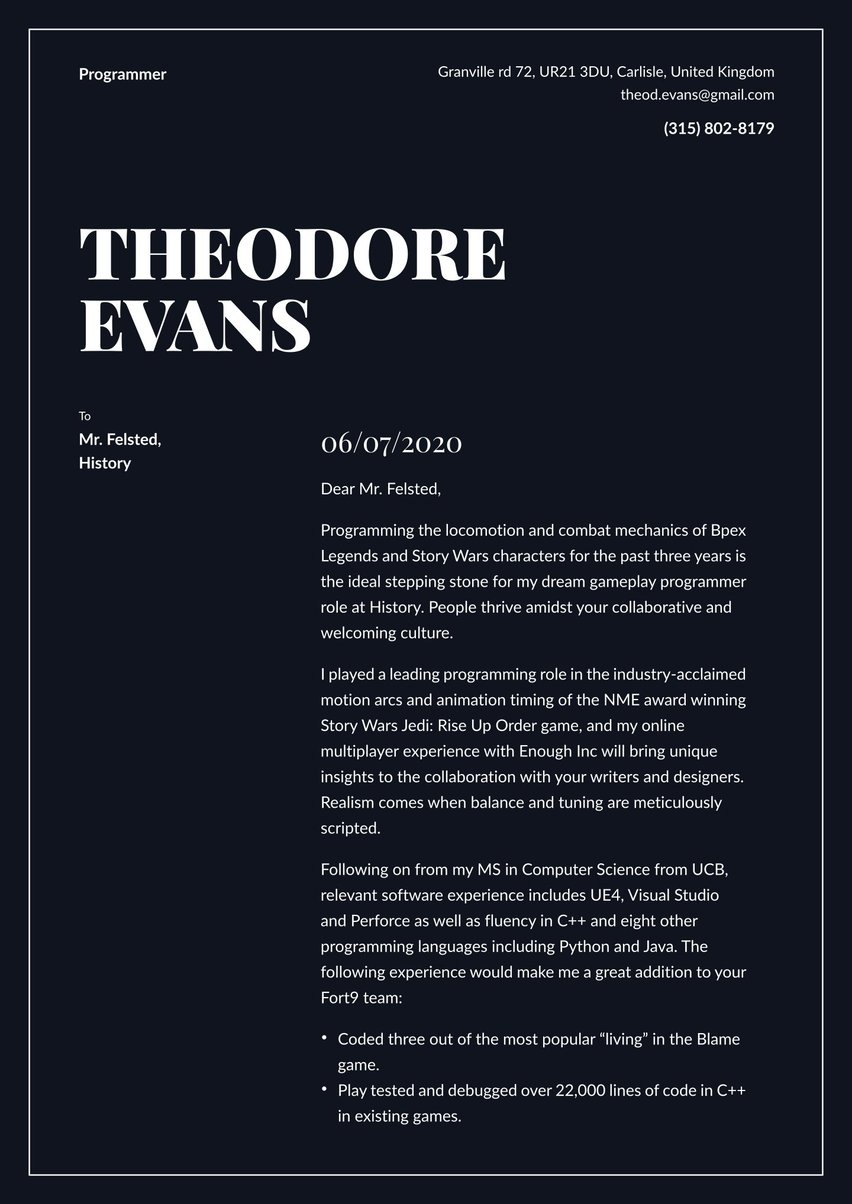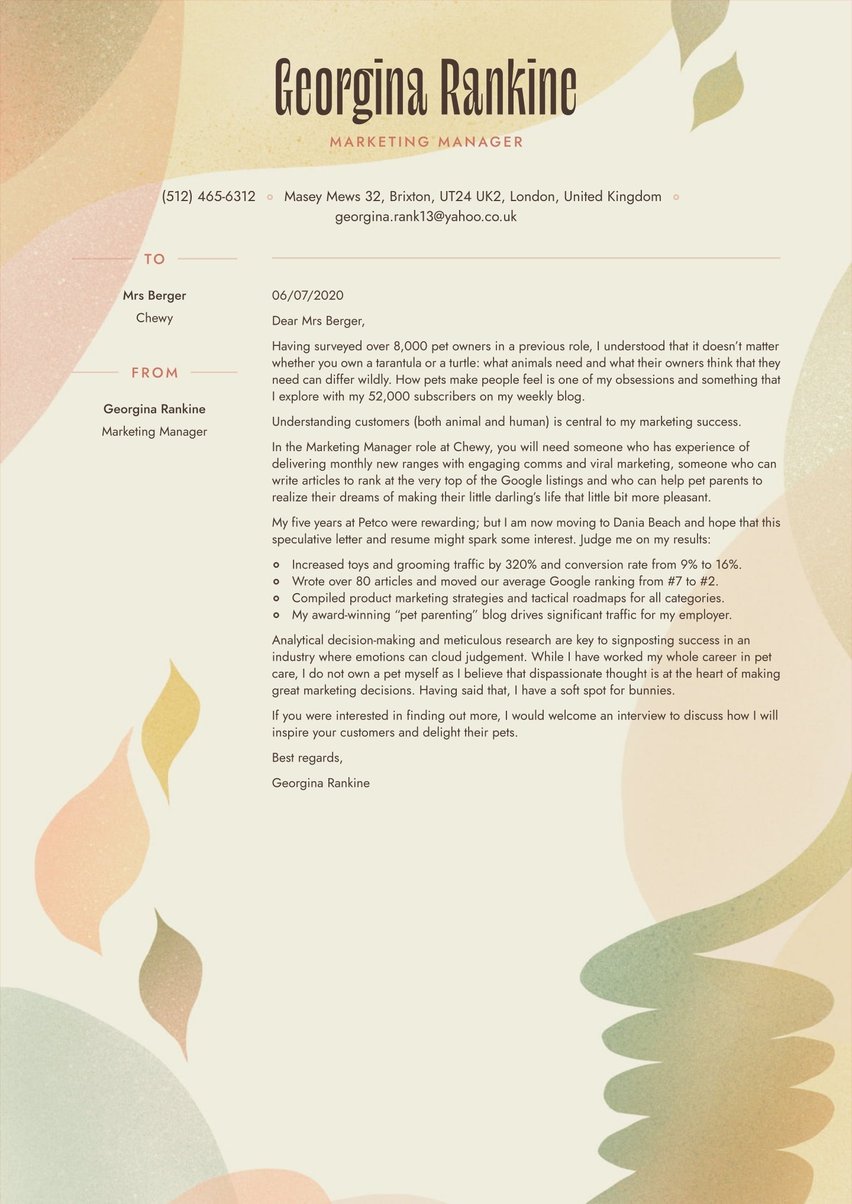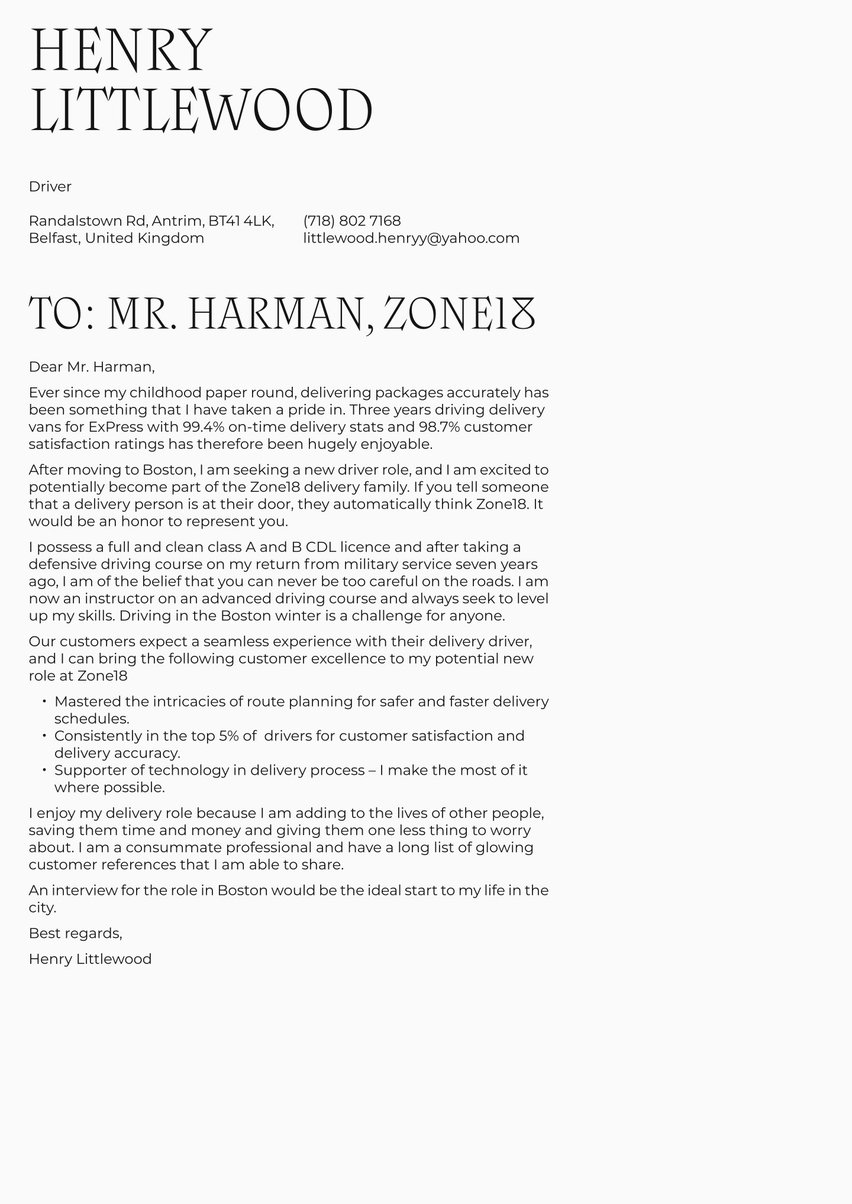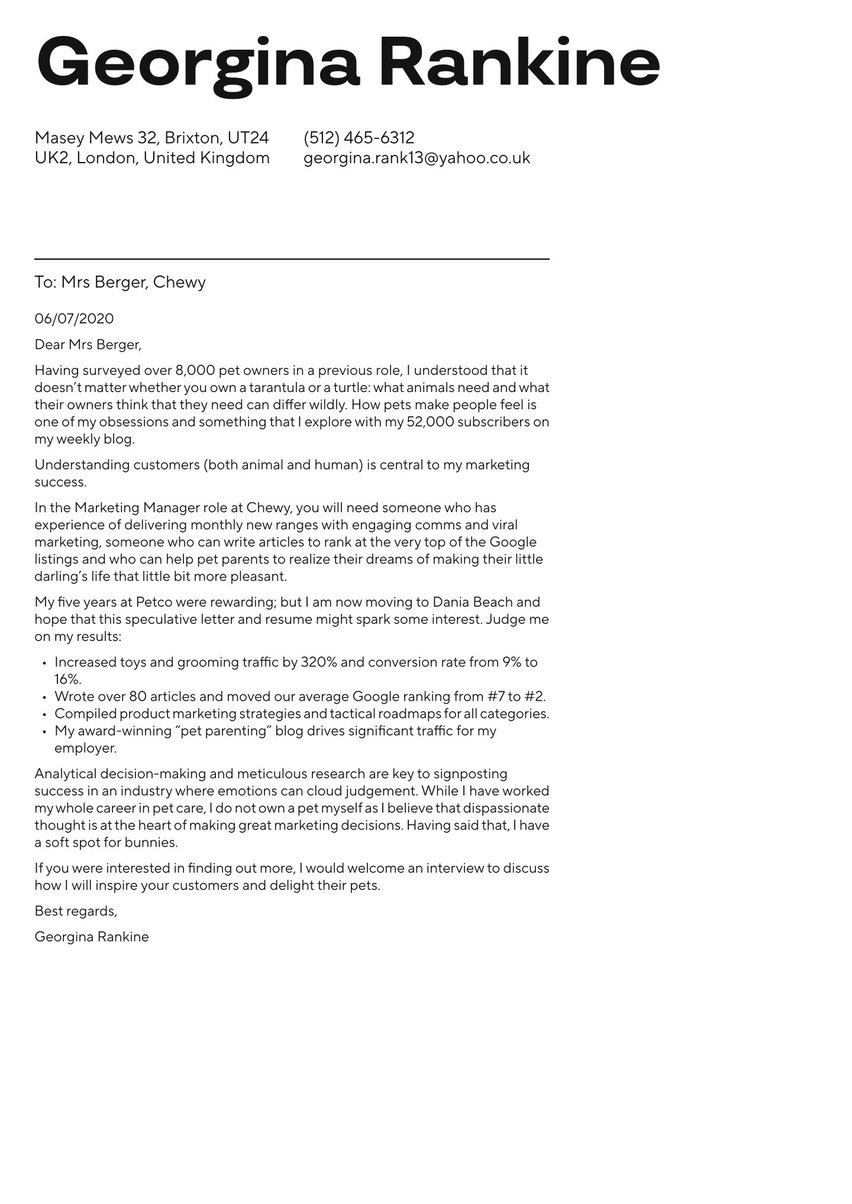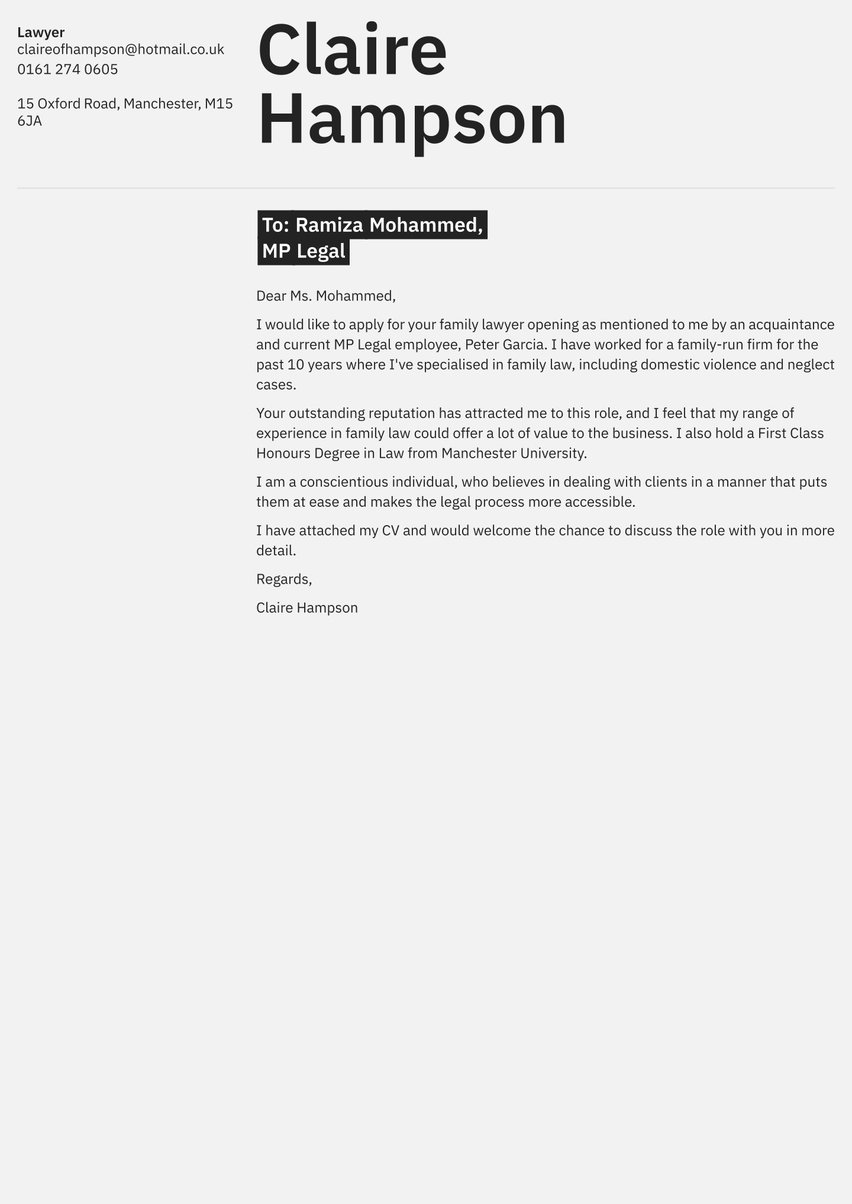As a thespian, you know what it takes to win over a crowd — but can you win over a casting director? When you’re applying for acting jobs, your showreel will do a lot of the heavy lifting. However, writing an engaging cover letter may help you to seal the deal.
Whether you’re a seasoned performer or new to the stage, you’ve come to the right place. To land that all-important audition, you need to make sure you’re speaking the casting director's language. Yes, it takes a certain level of fitness to wow them with this application letter.
Here at Resume.io, we have the tools you need to level up your career. We’ve got a full library of cover letter examples and writing guides to give you the inspiration you need. In the following writing guide, and acting cover letter example, you can expect to learn:
- What the best format for an acting cover letter is (plus a cover letter sample)
- Expert-backed advice on how to write different sections of your cover letter
- How to write an acting cover letter even if you have zero experience

Best format for an acting cover letter
Ready to start writing your acting cover letter? Chances are, you have a bunch of interesting anecdotes you want to include. However, you need to stick to the highlights here. To stop you from monologuing your way through this letter, here’s a quick structure:
- The cover letter header
- The greeting/salutation
- The cover letter intro
- The middle paragraphs (body of the letter)
- The ending paragraph of your cover letter (conclusion and call-to-action)
Never written a cover letter before? No problem! Read our comprehensive cover letter guide for in-depth advice on each of the sections. Understanding what to include in each part of the letter will help you whether you’re a novice or an expert in the field. You can also take a look at our cover letter example for some more guidance.
Dear Mr Carson
I am an experienced actor having spent the last several years portraying various roles on stages around the UK. As a seasoned Shakespearean actress with experience at the Shakespeare Theatre Company, I am hoping to audition for the role of Juliet in your upcoming production of Romeo and Juliet.
I have been involved with the Shakespeare Theatre Company for the last six years. Most recently, I played Ophelia in Hamlet, directed by Leanne Burbeck. The play was acclaimed in the press for its innovative interpretation in a modern setting. I know that making classical theatre engaging for young audiences is fundamental to Cardiff Playhouse’s philosophy. This is something I believe strongly in and is reflected in my previous credits.
During my undergraduate at Rose Bruford, collaboration and experimentation were important parts of my acting training. Not only did this prepare me well for an industry that has to reinvent itself to stay relevant. It has also informed the type of work that I have aligned myself with so far in my career. I have made relationships with theatre companies and directors where values of innovation and creativity are valued. I would love to continue this trajectory at the Cardiff Playhouse, as I admire your consistent approach to peeling back a work to understand its core and reinvent it for a modern audience.
I played Juliet at the Shakespeare Festival in 2021 in a classical setting. I would love to take what I learned there and help to devise a modern rendition of the play under your guidance. As you can see from my attached headshots, I look young for my age and am 5’2” tall which directors have found advantageous for me to play younger roles.
I would be delighted to tell you more about my experience in an audition.
Sincerely,
Tana Lewis
Pepper your cover letter with keywords!
Want to make sure that your acting cover letter lands on the director’s desk? One tip is to include keywords and phrases in the letter. Take a look at the job advert or listing and see which phrases jump off the page. Those are the ones you want to weave in there.
If the company is using an Applicant Tracking System (ATS), this approach will help you succeed. The software ranks incoming applications by how well they fit the criteria of the role. The program uses keyword-matching to determine which candidates have what it takes. The better the match, the more likely you are to get an audition.
Cover letter header
The cover letter header is located right at the top of the page. It’s hardly the most engaging part of your application. Nevertheless, you need to ensure that the information you share here is clear and concise. The header includes your name, location, and contact details — pretty basic stuff. If your application impresses the casting office, though, they will need these details pronto. Make sure that they stand out for all the right reasons.
If you’re looking for additional inspiration for cover letter writing, you can check out our related cover letter examples:
Cover letter greeting
Lights, camera, action! It’s time to get started with your cover letter greeting. You want to kick things off on the right foot. If you’re auditioning for a part, you may already know the director or casting director’s name. Use that information to your advantage. Address them by their title and surname. For example, “Dear Mr. Simpson” should do the trick.
Of course, you won’t always know who will be reading the letter. If that’s something of a mystery, you need to go with a vague opener instead. Avoid the old and stuffy “To Whom it may concern” greeting. That won’t do you any favours. Instead, go for a greeting tailored to the acting job. For instance, you may try “Dear Hype Acting Company”.
Cover letter introduction
Now that you’ve said your “hellos,” it’s time to set the scene. The first few lines of your acting cover letter need to hook your audience. Say something dramatic (and true!) so that you leave them wanting more. What is the most interesting thing about your application?
As a rule, cover letters should be no more than 300 to 400 words. So, you don’t have words to spare here. Get straight to the point and open the letter with something that will make the reader’s jaw drop. You might want to start with the previous roles you’ve aced, your supreme level of acting training, or the five-star review you had in a local magazine.
Dear Mr Carson
I am an experienced actor having spent the last several years portraying various roles on stages around the UK. As a seasoned Shakespearean actress with experience at the Shakespeare Theatre Company, I am hoping to audition for the role of Juliet in your upcoming production of Romeo and Juliet.
Cover letter middle part (body)
The middle paragraphs of cover letters are where you get to expand on what you’re bringing to the stage. Now that you’ve grabbed the director’s attention with a killer opener, you need to make sure that you keep it. Luckily, there are a couple of ways to do that.
One approach may be to talk about your acting experience. What roles have you played and where? What reviews did you receive? How long did you play a specific role (if it was a theatre production, for example)? Answering these questions in the body of your cover letter is a smart move. Wherever possible, provide evidence for the claims that you make. For instance, you may want to add facts, figures, and statistics to statements.
If you’re less seasoned, you may want to emphasise your acting training. Where did you learn the art of theatrics? Who did you study with? Are there any methods with which you are particularly familiar? The aim is to let the casting director know that you’re serious about this career path — rather than merely dipping your toe into the acting pool.
I have been involved with the Shakespeare Theatre Company for the last six years. Most recently, I played Ophelia in Hamlet, directed by Leanne Burbeck. The play was acclaimed in the press for its innovative interpretation in a modern setting. I know that making classical theatre engaging for young audiences is fundamental to Cardiff Playhouse’s philosophy. This is something I believe strongly in and is reflected in my previous credits.
During my undergraduate at Rose Bruford, collaboration and experimentation were important parts of my acting training. Not only did this prepare me well for an industry that has to reinvent itself to stay relevant. It has also informed the type of work that I have aligned myself with so far in my career. I have made relationships with theatre companies and directors where values of innovation and creativity are valued. I would love to continue this trajectory at the Cardiff Playhouse, as I admire your consistent approach to peeling back a work to understand its core and reinvent it for a modern audience.
I played Juliet at the Shakespeare Festival in 2021 in a classical setting. I would love to take what I learned there and help to devise a modern rendition of the play under your guidance. As you can see from my attached headshots, I look young for my age and am 5’2” tall which directors have found advantageous for me to play younger roles.
How to close an acting cover letter (conclusion and sign-off)
It’s almost time for the final curtain. You always want to leave the audience shouting “encore” — do the same thing in your cover letter. Make sure you close this letter on an enthusiastic and optimistic note. You may want to reiterate a couple of key points here.
Including a Call to Action (CTA) in your cover letter can be an effective way of securing a callback. For example, you could tease the reader by saying “If you would like to learn more about my acting methodology, I’d be happy to share it with you”. Let the reader know that you are eager to hear from them. Don’t be arrogant but show some confidence.
I would be delighted to tell you more about my experience in an audition.
Sincerely,
Tana Lewis
Acting cover letter with no experience
New to the stage? Every actor has to start somewhere. If you don’t have any credits under your belt, you may have to get creative in your cover letter. Don’t panic — there are still plenty of things you can talk about. Here are some points that you may choose to include:
- Your training. Where did you learn to act? What certifications do you have? Was there anything special about the drama school that you attended? Be specific.
- Why you suit the role! What is it about this particular part that is calling your name? Do you know this character like the back of your hand? Was it the role that you were born to play? If you think it’s perfect for you, go ahead and explain why.
- Your enthusiasm. A little enthusiasm can go a long way. When writing an acting cover letter with no experience, show that you are passionate about the production.
Hitting on those key points may be enough to turn the director’s head. Getting your foot in the door is half of the battle. Be sure to keep trying until you land your next audition.
Key takeaways
- While showreels are important when it comes to acting gigs, you shouldn’t neglect your cover letter.
- Writing a compelling cover letter is a neat way to seal the deal when it comes to your next audition.
- Include keywords and phrases throughout your letter. That way, your entire application is more likely to get past the Applicant Tracking System (ATS).
- If you’re not sure where to start, we’ve got you covered. Check out our field-tested cover letter templates now!
At Resume.io we want to make writing your cover letter easy, so you can focus on playing your part on the stage or screen. Our cover letter templates means you can simply start writing.

